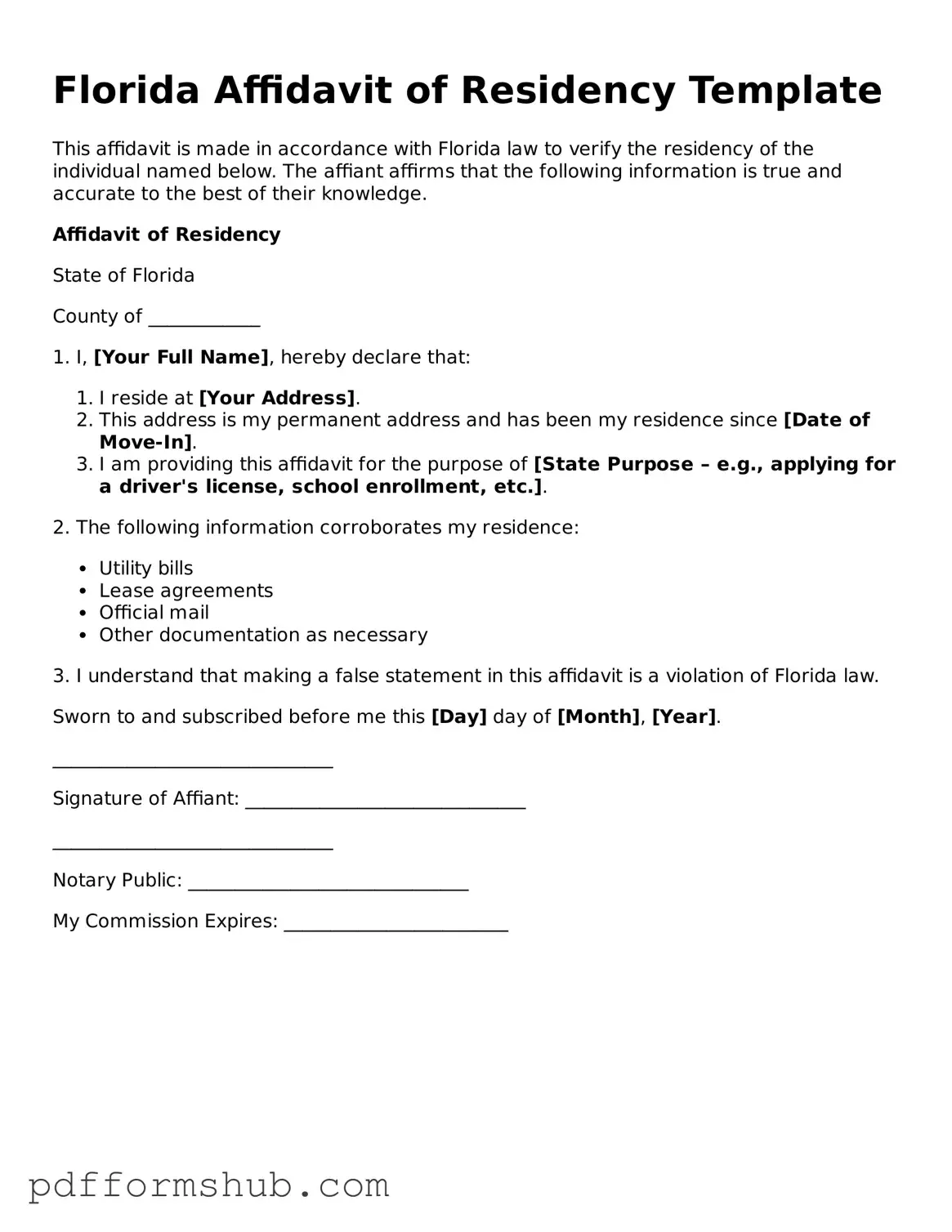Attorney-Verified Affidavit of Residency Form for Florida State
The Florida Affidavit of Residency form is a legal document used to confirm a person's residence in Florida. This affidavit serves as proof of residency for various purposes, such as obtaining a driver's license or enrolling in local schools. Understanding how to properly complete this form is essential for ensuring compliance with state regulations.
To get started on filling out the Florida Affidavit of Residency form, click the button below.
Customize Form

Attorney-Verified Affidavit of Residency Form for Florida State
Customize Form

Customize Form
or
Free PDF Form
Short deadline? Complete this form now
Complete Affidavit of Residency online without printing hassles.